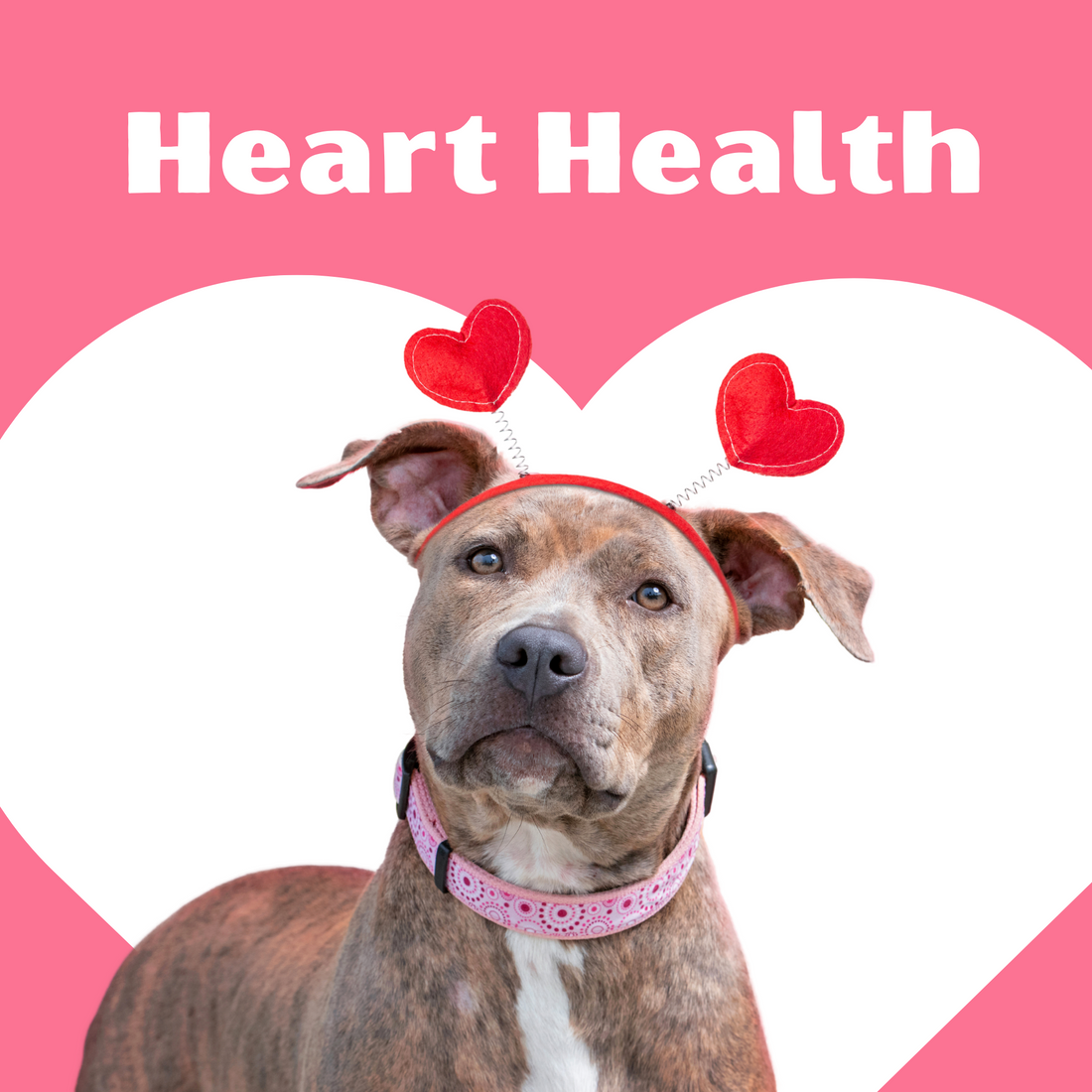
Heart Health
Share
Keep Their Love Pumping!
Unfortunately, there are a few risks to keep in mind with your pet’s heart health.
Obesity, genetic diseases, infections or injury can cause heart problems, but chronic heart disease is a major concern for dogs and cats. Roughly 10% of dogs will live with heart disease.
Heart disease is more prevalent in some pet breeds than others, but it also depends on a bunch of other lifestyle factors including diet, exercise, and environment. It's important to be informed about how to spot, prevent and protect your pet from heart disease and other cardiovascular problems.

The most common heart disease in cats is Hypertrophic Cardiomyopathy. Maine Coons, American and British Shorthairs and Persian cats are all predisposed for hypertrophic cardiomyopathy. The Siamese, Ragdoll and Sphinx are also predisposed to different heart diseases. If you are concerned or curious about your pet's possible genetic diseases, speak to your vet and learn more about its breed. Other kinds of lifestyle components including diet, amount of exercise, and environment can impact your pets heart health. A common risk to pet heart health is obesity, overfeeding and/or nutrient deficiency.
Keep an eye on your pet for any of the signs and symptoms of possible heart conditions:
- Persistent coughing
- Difficult breathing
- Fainting
- Weight loss
- Reduced ability to exercise
- Difficult eating
- Fatigue
If you are noticing any of these things, it's best to speak with a vet. However, to avoid a vet visit, you can try doing these few things to protect your pets heart health.
Feed your pet a suitable amount of food per day, encourage them to exercise by engaging them in physical play and giving them room to move on their own, watching their weight, protecting their gut health, and ensuring they're eating a balanced diet.
You can find lots of good information online about how to keep your pets heart healthy, including here at Bella and Boots! Our food packs are vet-formulated and packed full of heart-happy foods, including organ meats like hearts, fatty fish packed full of Omegas and green leafy veggies. We've made sure to include a balance of ingredients and naturally added nutrients to boost your pets heart, gut, skin, coat and brain health. Don't worry, your pets diet is taken care of with our raw food packs.
